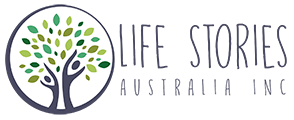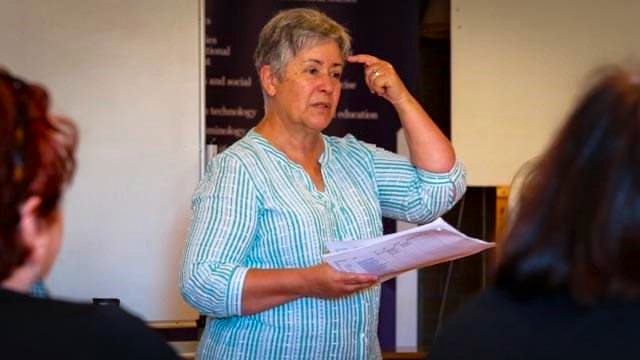‘And what did it look like?’
Thea, who was attending one of my life story workshops, looked as if a lightbulb had just been switched on. Her face became animated as she recalled leaving a smoky polluted town to move across the state to the countryside.
Fresh air! Blue sky! The trees, the flowers …!
I smiled inwardly, delighted that her life story now included personal impressions.
My first question when I hold a life story workshop is, ‘Why are you here?’
Most reply that they have been writing their story for months, years (decades…) and want some inspiration.
Many life stories begin with ‘I was born on … I and x brothers and sisters … I went to school at …’ There is nothing wrong with this style of crafting your life story, but it can become a chronological account of events and it tends not to reveal the real you, the wonderful person your children, grandchildren and friends know and want to remember.
One exercise I give workshop attendees is to do a mind map. A mind map is a way of teasing out ideas and seeing connections. To do a life story mind map, write down and enclose in a circle one life-changing event. (The first life-changing event we encounter is being born, but none of us can remember that!)
It could be something as simple and non-dramatic as going to school; it’s life-changing in that this was the first time you spent most of your day with people who were strangers. From your life-changing event, draw a line to another circle and write in it what effect that event had on you, how it changed you. If school was your life-changing event, you may write in your circle that you had to learn to stand up for yourself, or (if you were a migrant) you learnt another language and culture, or you discovered your ability and love of maths or sport or history. That could lead on to influential people in your life, character development and so on.
When doing this exercise, my workshop participants have usually written a list of events. I ask a few questions such as: ‘How did that make you feel?’ ‘Can you remember what you saw/heard/tasted/touched at the time?’ ‘Do you think that you are the person you are today because of that event?’
Like Thea above, they now ‘get the picture’. I can hardly stop them talking and sharing as they excitedly remember. Memories like a first dance with the beautiful girl who is now his wife, what she wore, how shy he felt. Or being the first one in their family to go to university, their growth in confidence, their sense of mission.
One dear man opened up about a life of trauma and said, ‘I feel safe here. I can trust you all. In a way, it’s easier to talk to strangers.’ And that’s the point – it is easier to tell your story to a trusted stranger than it is to write it yourself, and a life story professional will prompt you to include your feelings, your senses, your thoughts – the things that make you who you are.
You can contact Susan to participate in one of her Life Story workshops or if you’d like to engage a Life Stories Australia member to discuss the process of recording your life story look at the Member page to find a life story professional.



Follow Us